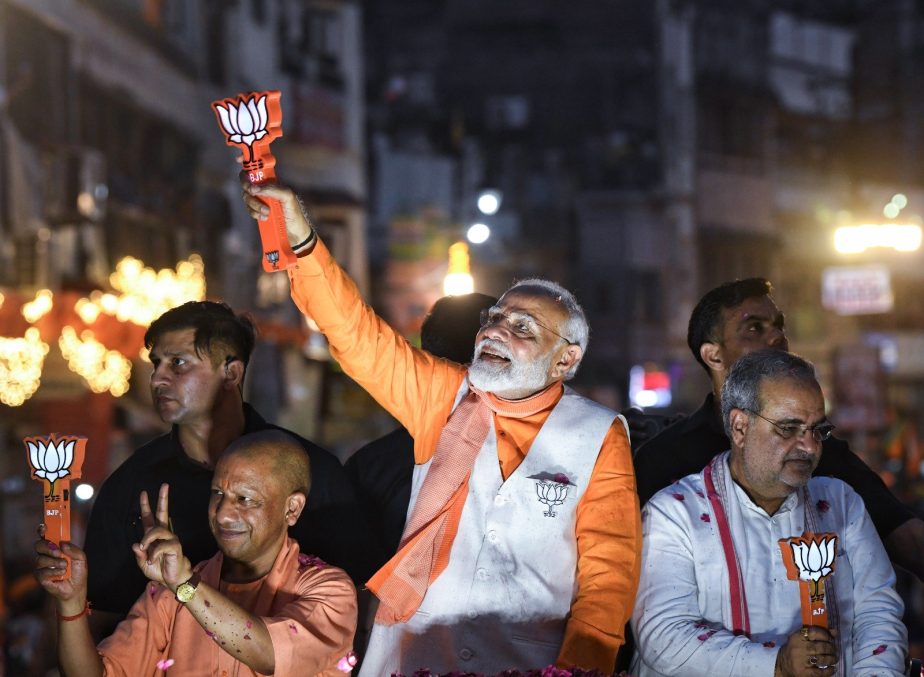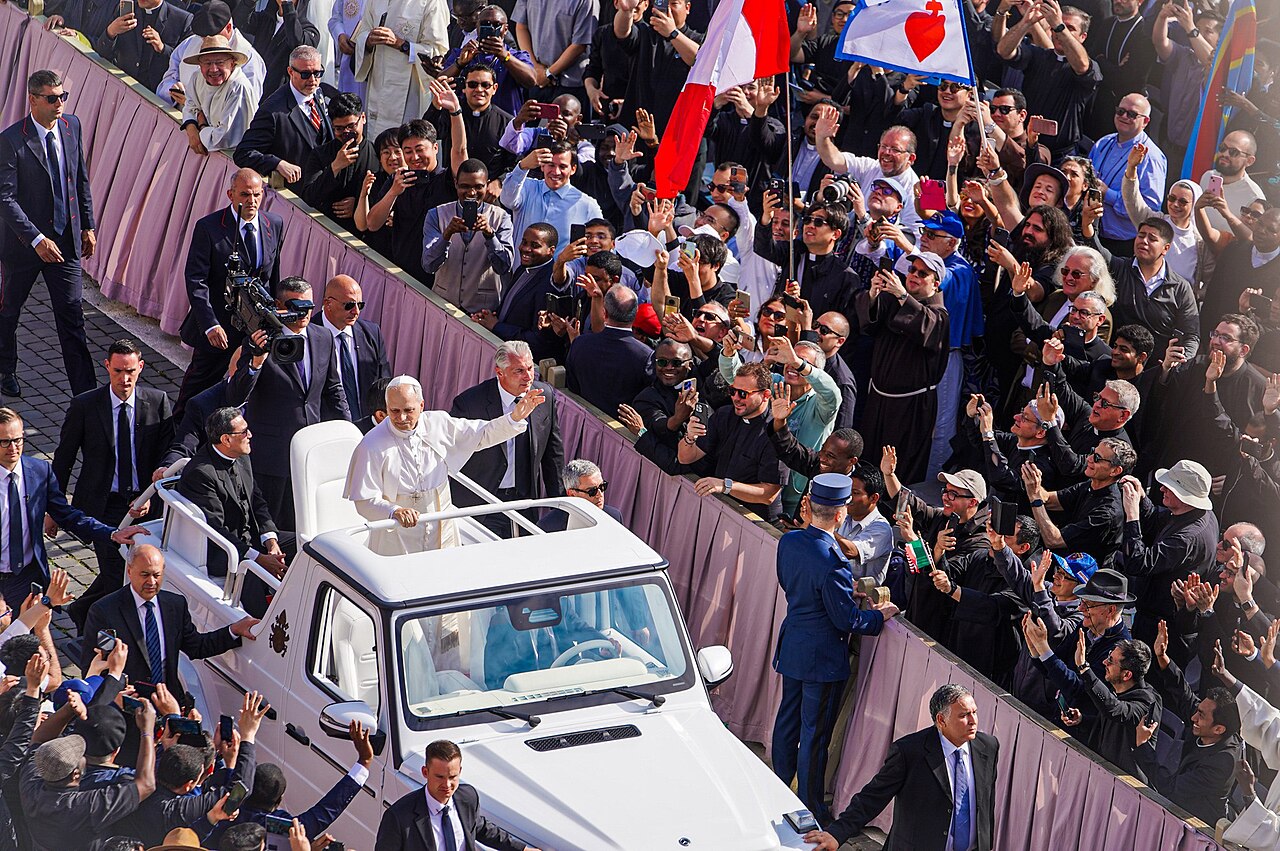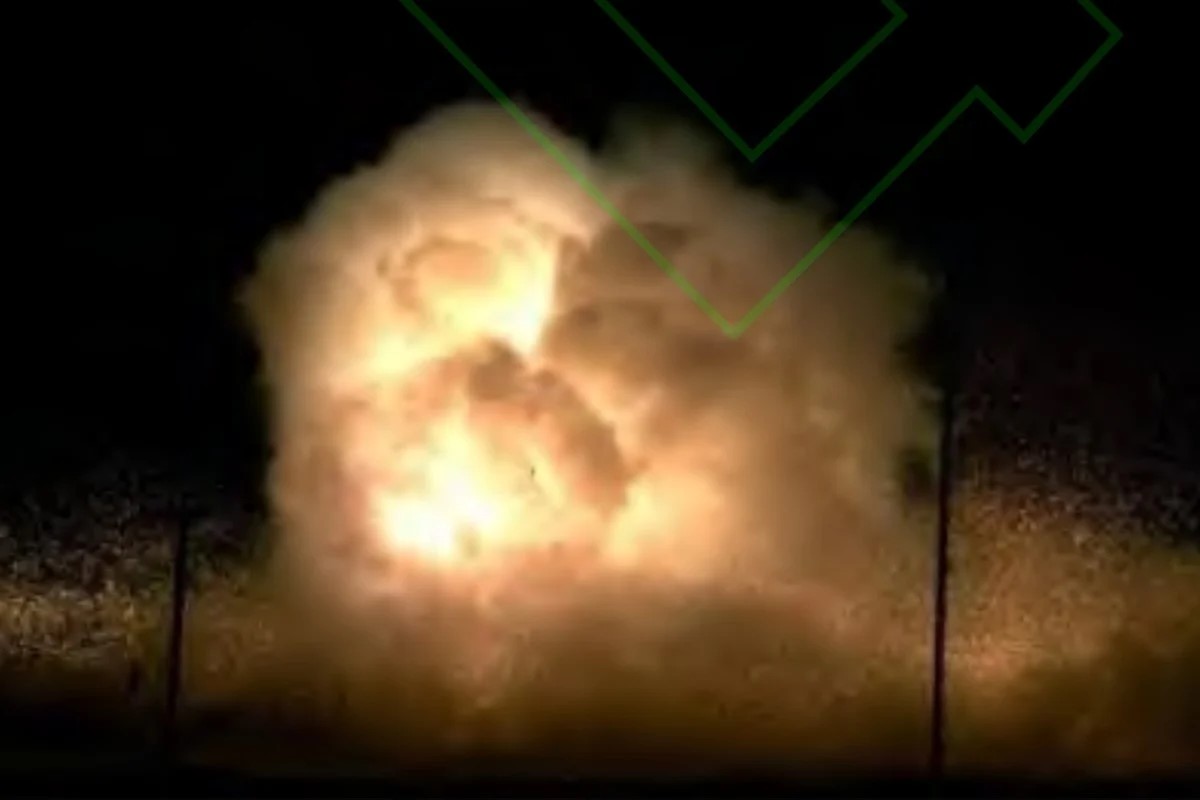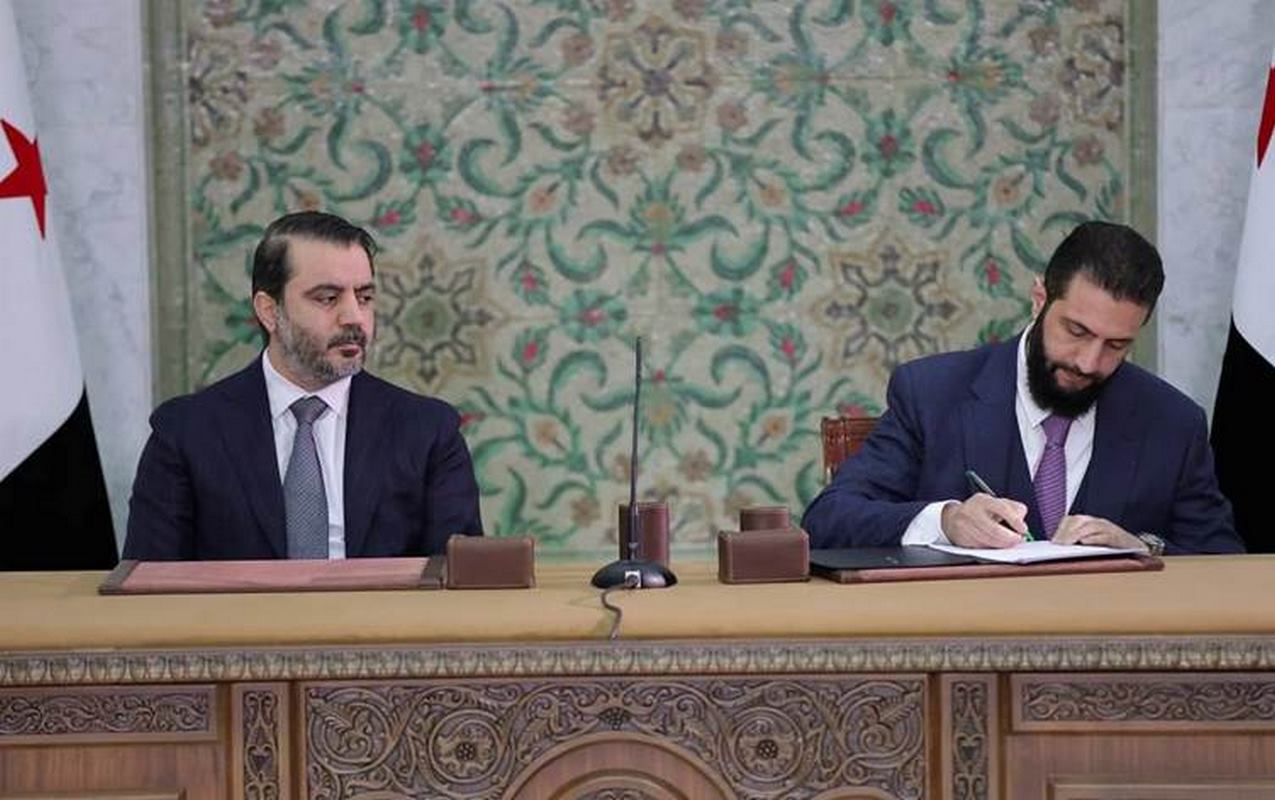The world’s largest democracy is in the throes of its national elections, with Prime Minister Narendra Modi recently arriving to file for his third consecutive run to the country’s highest office last week from his stronghold at Varanasi, Uttar Pradesh.
In Varanasi, streets were festooned with orange and green flags of Modi’s party and the customary Ganga Aarti ceremony held nightly on the banks of the holy river was crowned with a drone light show that doubled as a political stunt, as the drones went from forming flowers and buildings to forming a ballot with Modi’s logo.
This extremely charismatic leader who has personally won 4 consecutive elections as PM and Chief Minister of Gujurat, and who touts his record on infrastructure, foreign policy, and elevating India’s global standing, also carries a record of nationalistic intolerance, corruption, and a suspected desire to alter India’s rather unique constitution that provides protection to all citizens regardless of their caste, gender, religion, or ethnicity, in a country where such things used to be codified.
Sober analysts see these as legitimate threats to Modi and his Bharatiya Janata Party’s (BJP) consolidation of national politics, and though a broad and enormous opposition coalition bearing the rather catchy acronym of INDIA (Indian National Developmental Inclusive Alliance) consisting of 26 parties has risen to the challenge of defeating the popular Hindu PM, the question of who INDIA will choose to run against Modi doesn’t have a clear answer.
Previously, INDIA suggested that they weren’t particularly interested in seeking the prime ministership, and instead are looking to capture a large majority of the 543 seats in India’s lower house, known as Lok Sabha, which would grant them significant defenses against the more totalitarian tendencies of Modi.
Language from coalition members has hinted it may be Rahul Gandhi, son of the assassinated 6th Prime Minister of India, Rajiv Gandhi, who in turn was the son of the infamous/famous Prime Minister Indira Gandhi, who was also assassinated in 1989. A comparison to the Kennedy family seems somewhat appropriate in terms of describing the fame of Rahul, who thus far served as Chief Minister, equivalent to a state Governor in the USA, of Chhattisgarh.
Gandhi said that they will select a candidate to challenge Modi after winning the Lok Sabha elections, set to take place this year in advance of the PM race. Modi and BJP have registered 425 candidates for the 543 seats in Lok Sabha, the most the party has ever fielded.
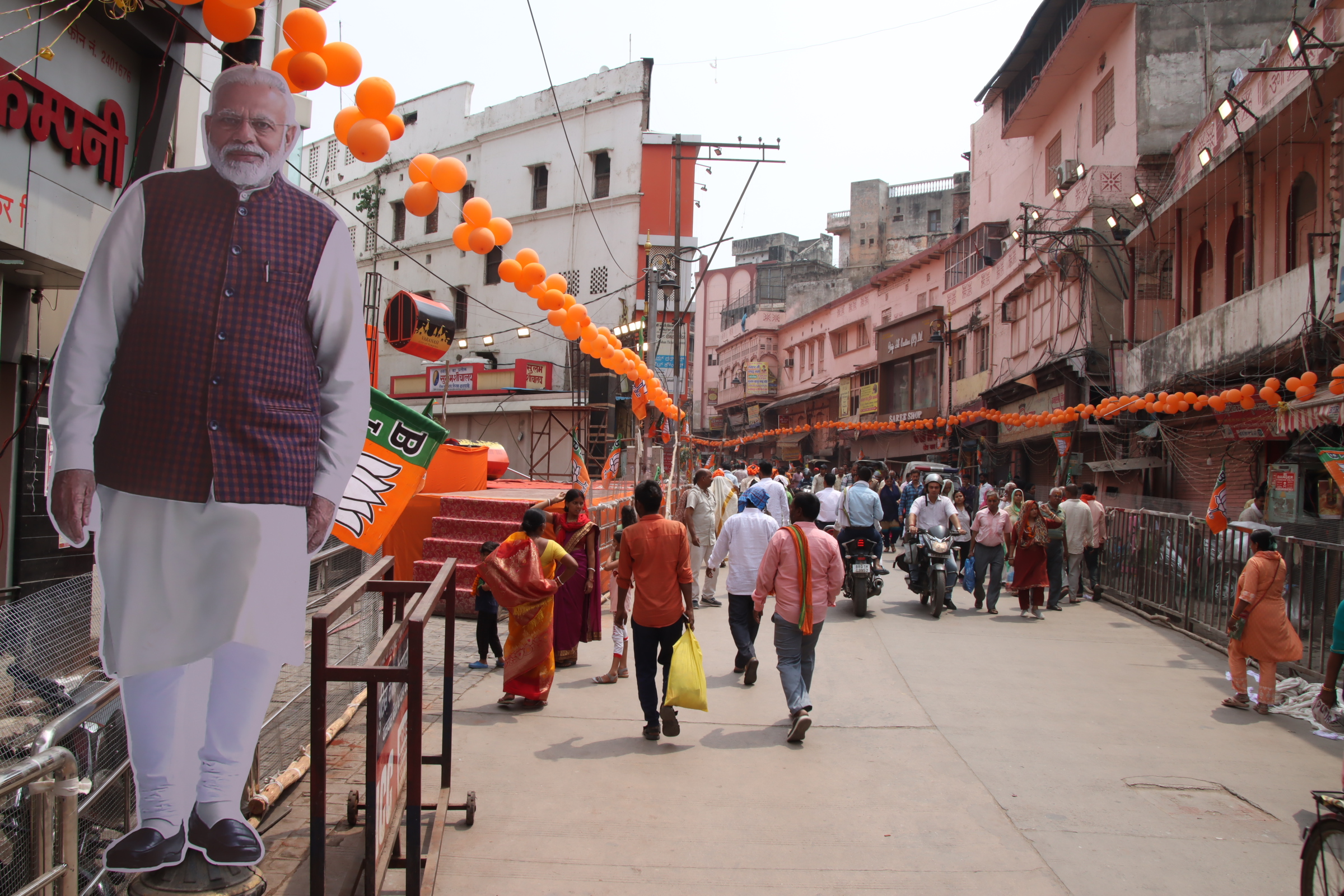
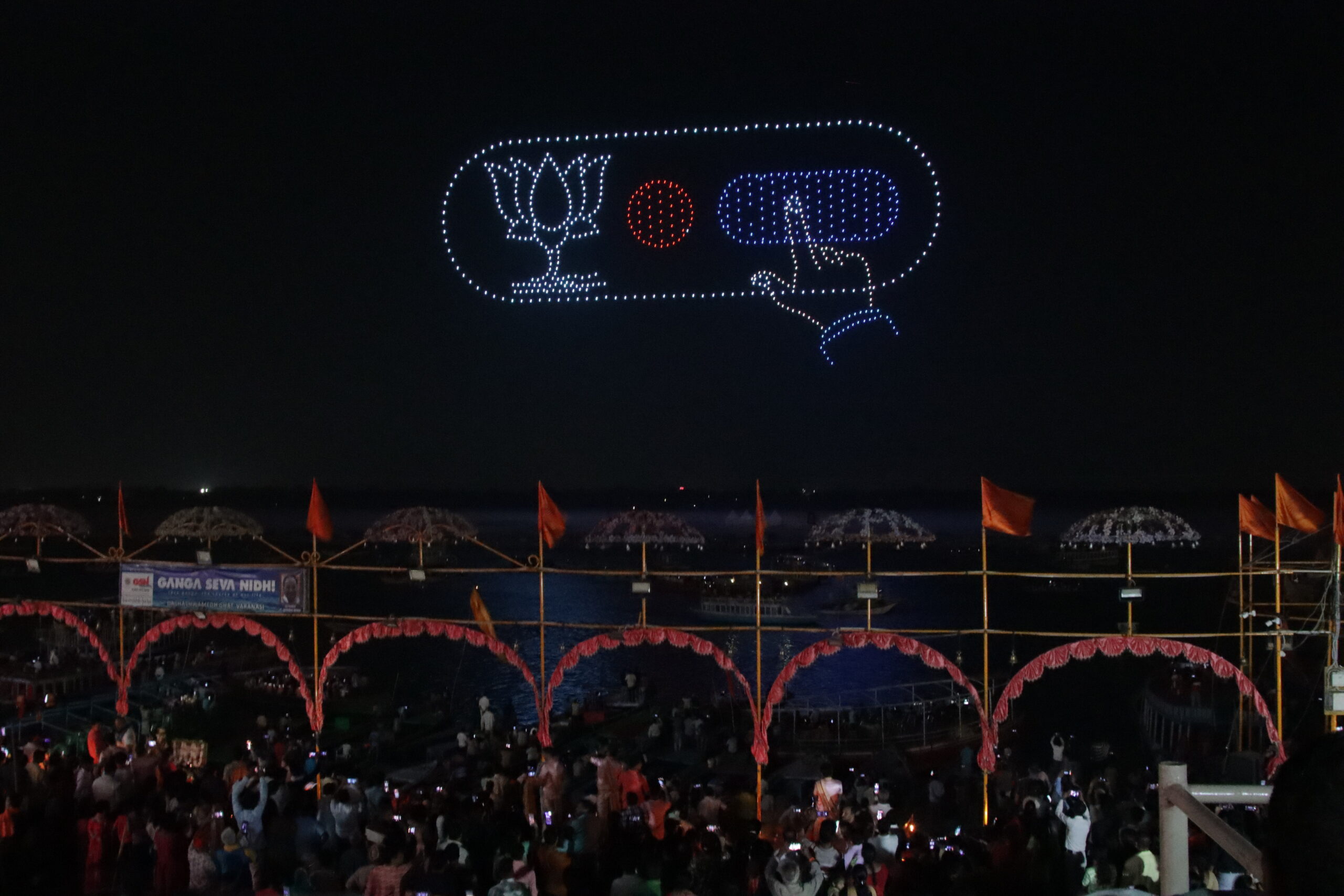
The world’s largest democracy
Nearly 970 million people are eligible to vote in India, making it by far the world’s largest democracy. The elections last from April to June, and this year most polls show Modi and the BJP are leading in the race for Lok Sabha seats.
The elections are halfway done, and reporting from The Diplomat details some noteworthy trends, such as the potential loss of seats for the BJP in Bihar after failing to bring economic development to one of the poorest states in the country, and a strong showing in some of the districts of Jammu Kashmir.
The BJP has an objective of winning 400 or more seats in Lok Sabha, where it currently holds 303 outright and 311 with affiliate parties. A 400-seat majority has never been accomplished in Indian politics, and much of their efforts will likely have been focused on improving on their 2019 performance in the five southern states of India, where the BJP is weakest, and consolidating as much of the vote from the Hindu population as possible, who make up 80% of the country and all of Modi’s strongest supporters and strongholds.
Members of the INIDA bloc, including Gandhi, have directly accused Modi of intending to alter or disregard certain aspects of the constitution, and that the 400-seat majority he seeks is directly tied to that goal. Another senior member of the coalition, Mamata Banerjee, Chief Minister of the prosperous state of West Bengal, said that the BJP “will throw out everyone through the [National Register of Citizens (NRC)] and there will be no more elections in the country,” stating plainly that “this will be the last election if Modi comes to power”. Modi’s camp rejects both these accusations, but some say his relationship with democracy resembles one between a man and an instrument, rather than between a man and a sacred institution.
“Parliament has been systematically emasculated in a way unprecedented in India’s bumpy journey as a parliamentary democracy,” writes Sumantra Bose, a professor of economics at University College London and author of eight books on India’s political history. “Its role has been reduced to ramming through a variety of contentious laws using brute majorities and celebrating Modi’s purportedly visionary leadership”.
This started immediately, Bose explains, following Modi’s 2019 re-election with the Jammu and Kashmir Reorganization Act, which changed the status of the Indian portion of Kashmir from a ‘union territory’ into an outright state, which many protested as obscuring and eliminating the Kashmiri right to self-determination, and the Citizenship Amendment Act (CAA), which amended the NRC that CM Banerjee referred to above. The CAA puts immigrants or refugees of several religious and cultural denominations on a special track toward achieving Indian citizenship; Muslims are not one of these.
Victory assured*
While the polls appear favorable, there are signs that Modi is getting slightly desperate, which both voters and analysts see in the uptick in anti-Muslim rhetoric used by Modi and his party members.
Uttar Pradesh’s Chief Minister Yogi Adityanath, said that if the INDIA coalition leader, the historically-dominant National Congress party, regains control of Indian politics, “then cows will be slaughtered for Muslims”. Modi’s Home Minister Amit Shah said that if Congress wins then “Sharia law will be implemented”.
Modi said that if Congress wins “only Muslims would be selected to play for India in cricket,” and that “locks would be put on Ram Mandir,” referring to the Ram Temple which Modi controversially reconstructed and consecrated in January. The Ram Temple in Ayodhya, Uttar Pradesh, is believed to be the spot where the Hindu god Ram was born but had been the site of a Mughal mosque since 1528. The mosque was destroyed by Hindu rioters in 1992, and the site played host to religious violence throughout the 21st century.
“Whenever the BJP is in doubt, it goes back to its communal agenda,” said the popular political commentator Ashutosh, writing as a guest author for The Diplomat. “For the party, hate-mongering for the consolidation of Hindu voters is the main crisis management tool during elections. In the 2014 and 2019 general elections, he did play the Hindu-Muslim card, but sparingly”.
This, he says is because “he has sensed that his defeat can’t be discounted”. WaL
We Humbly Ask For Your Support—Follow the link here to see all the ways, monetary and non-monetary.
PICTURED ABOVE: PM Narendra Modi rides through the streets of Varanasi, May 13th. PC: Narendra Modi, retrieved from X
